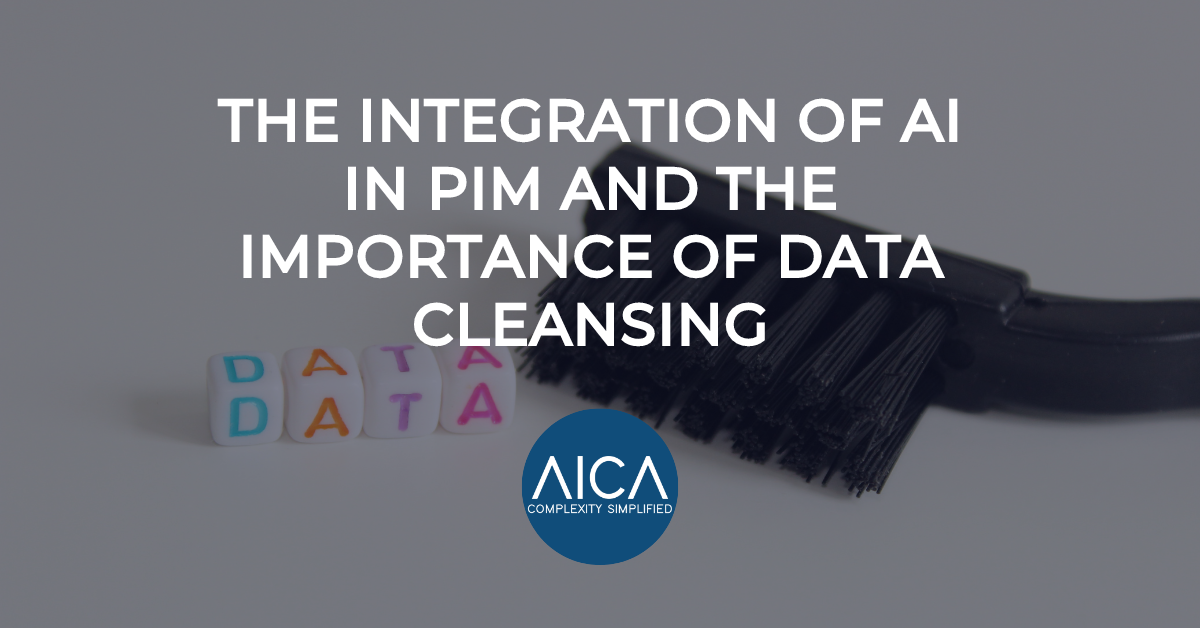Product Information Management plays a crucial role in how businesses manage and disseminate product data across channels. As the need for accurate and timely information becomes paramount, organisations are increasingly looking at Artificial Intelligence (AI) to enhance PIM.
One significant area within this scope is data cleansing, which ensures that the product data maintained is accurate and reliable. This article delves into the role of AI in PIM and the importance of data cleansing in ensuring clean PIM data.
AI in PIM: Revolutionising Data Management
Enhanced Data Analytics
AI-driven analytics tools can sift through vast amounts of product data to uncover patterns, insights and correlations that might be invisible to the human eye. This can help in forecasting demand, optimising inventory levels, and even tailoring marketing strategies to target specific consumer segments.
Automated Data Entry and Updating
Manual data entry is both time-consuming and prone to errors. AI can automate much of this process, pulling product data from various sources and ensuring it is consistent and up-to-date across all platforms. This can be particularly useful for businesses with large, frequently changing product ranges.
Personalisation and Recommendation
AI can analyse user behaviour and preferences to offer personalised product recommendations. This not only enhances the user experience but also increases the chances of sales conversion.
Multilingual Product Descriptions
For global businesses, AI can assist in translating product descriptions into multiple languages accurately, considering the cultural nuances, ensuring that the product information is consistent and culturally relevant across different regions.
The Imperative of Data Cleansing in PIM
No matter how advanced AI tools become, the old adage “garbage in, garbage out” holds. Without clean, accurate data, any insights or automations derived from that data will be flawed.
This is where data cleansing comes into play.
What is Data Cleansing?
Data cleansing, or data cleaning, is the process of detecting and correcting (or removing) errors and inconsistencies in data. This ensures that the data is accurate, consistent and can be used for analysis.
Its Importance in PIM
– Improving Accuracy: Incorrect product data can lead to lost sales, returns, and a decrease in customer trust. Regular data cleansing ensures that such inaccuracies are rectified promptly.
– Eliminating Redundancies: Redundant data can confuse customers and employees alike. Data cleansing helps in identifying and removing such duplicates.
– Optimising Search: Clean data allows for better tagging and categorisation, making search functions more efficient and effective.
– Enhancing Decision-making: Clean data ensures that business decisions made based on this data, like inventory purchasing or marketing strategy, are sound.
AI and Data Cleansing
AI can significantly enhance the data cleansing process through:
Automated Error Detection
AI algorithms can rapidly comb through vast datasets to identify errors or inconsistencies, something that would take humans significantly longer.
Predictive Cleaning
Based on past data patterns, AI can predict where errors might occur in the future and take proactive steps to prevent or correct them.
Continuous Learning
Machine learning models can learn from the corrections made, becoming better and more efficient at data cleansing over time.
Conclusion
The foundation of any successful AI implementation in PIM is clean, accurate data. Regular data cleansing is non-negotiable for businesses that want to harness the full power of AI in managing their product information. As technology continues to advance, the synergy between AI and data cleansing in PIM will only become more integral to business success.
Lastly, we would like to invite you to join us on the 14th of September in a round table webinar where we discuss the crucial role of AI in PIM.

